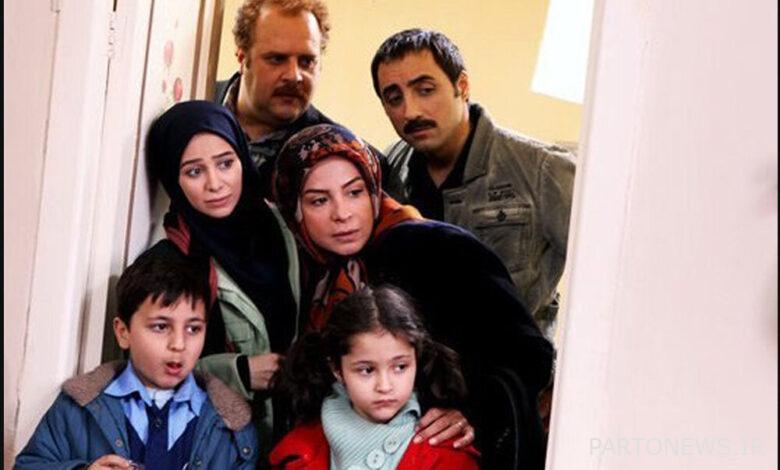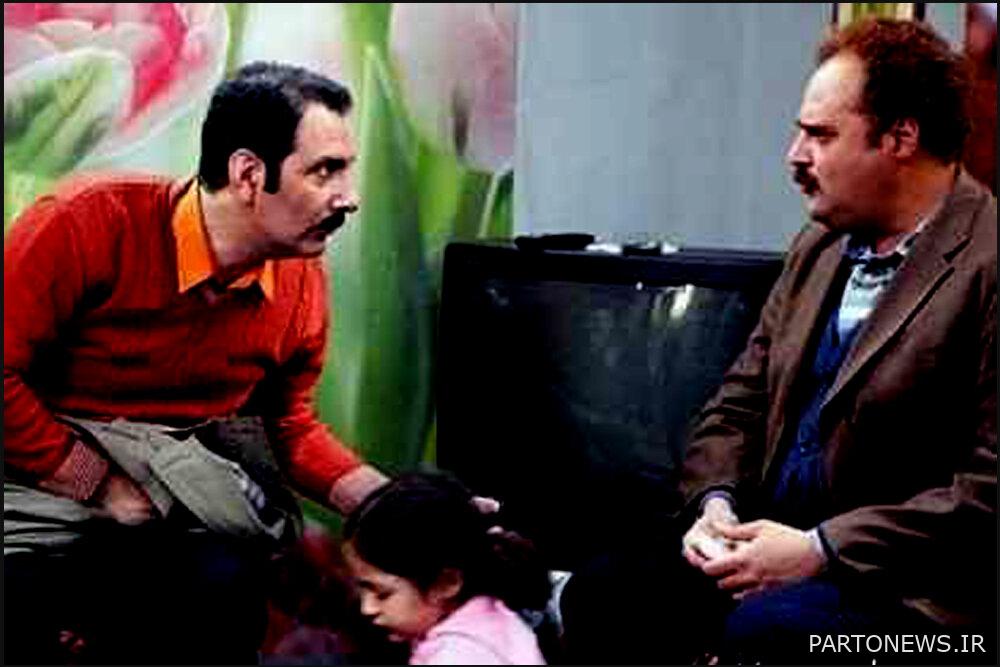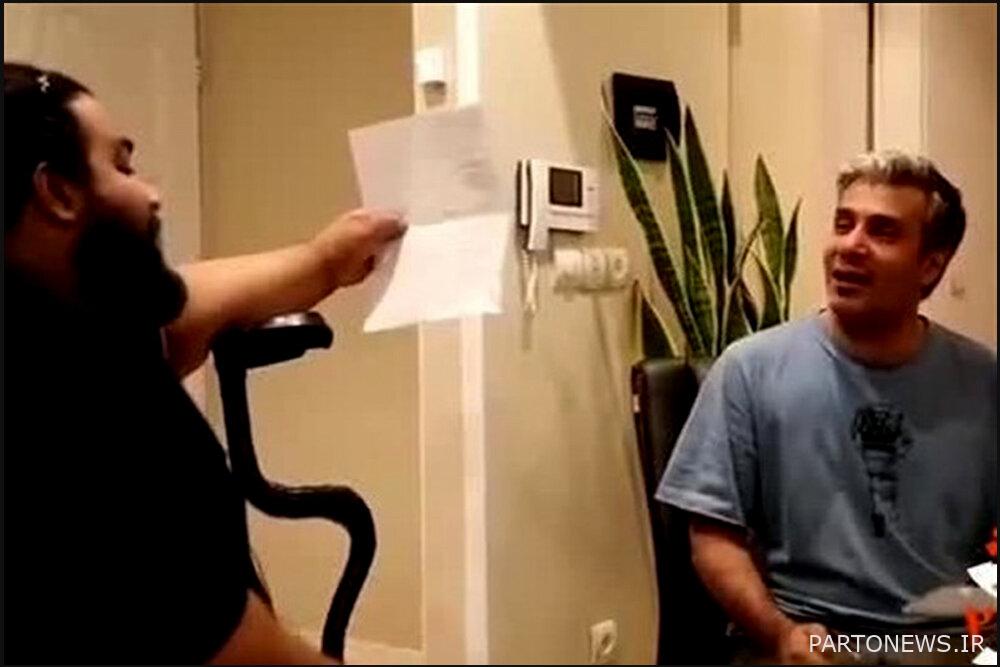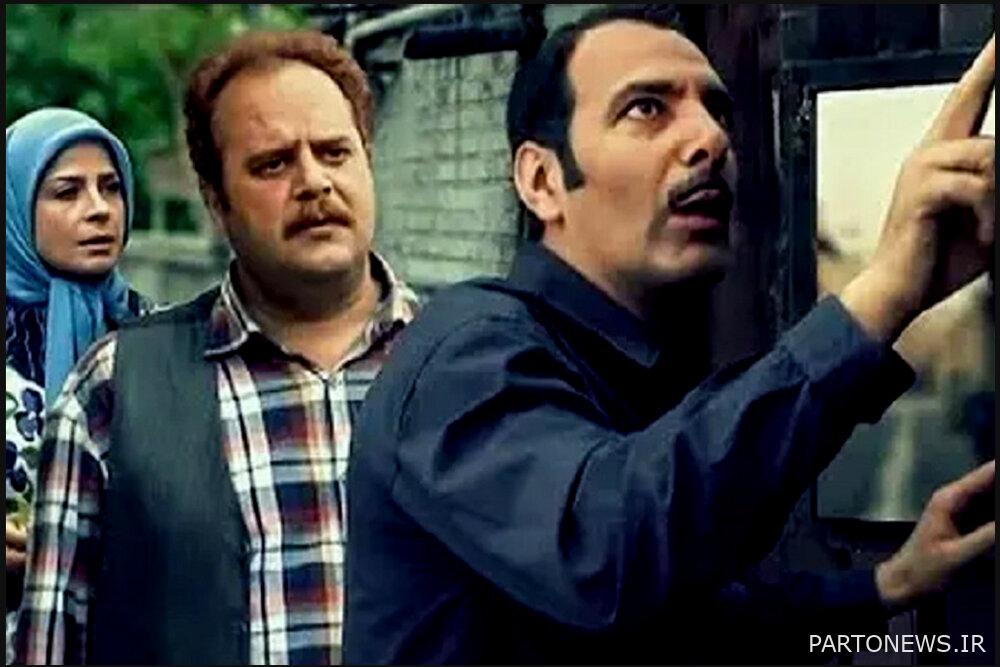The sweet experience became audible with “Dudekesh” – Mehr news agency Iran and world’s news

Mehr News Agency – Art Group – Alireza Saeedi; The function of the title is something similar to a book cover, whose designer tries to inform the audience of a work by choosing elements, forms and arrangements with the help of graphics and music. A situation that is sometimes presented to the audience in a very careful, thoughtful and calculated way, and sometimes it is made so coldly and based on the fulfillment of a mandatory task that it alienates the viewer from the basis of a visual work.
What became an excuse to once again return to the keyword “credits” is a review of the most lasting and memorable music related to some programs and works of cinema and television, which for many audiences include bitter and sweet memories, and referring to them again for us in Any situation can bring a world of memories. The memory game, after its launch and publication in Nowruz 1400 and the audience’s acceptance of it, prompted us to entrust our souls and minds to it in the form of a weekly memory game on Fridays every week and from its passage to the years when we are better than these days. It was troublesome, let’s go.
“Memory of Lasting Titles” is the title of a series of archival reports with the same approach, which you can follow on a weekly basis in the Art Department of Mehr News Agency.
In the 106th issue of this media narrative, we went to the title music of the first season of the television series “Chimney” directed by Mohammad Hossein Latifi, composed by Aria Aziminejad and sung by Reza Sadeghi, which can be considered as one of the souvenirs left from the television series of the early years of the decade. Ninety televisions were named. A collection with social themes that tried to show a corner of the problems and sufferings of an Iranian family from the middle class of society, who tried to overcome the problems and bitter events that happened to them in different situations. A story that, in the form of creating humorous situations, was able to have a good companionship with the taste of the audience of those days of television, so that the continuation of the series continued in the series “Padri” and “Chimney 2” and showed that it has good potential to attract the audience. .
As mentioned, the series “Chimney” was the name of an Iranian satirical TV series written by Hassan Varasteh and Barzo Niknejad, directed by Mohammad Hossein Latifi and produced by Zainab Taqvai, which was broadcasted on Ik Sima channel during the holy month of Ramadan in 2013. This is while the second season of the series titled “Padri” was released in Ramadan 2015 and the third season titled “Chimney 2” directed by Barzo Niknejad in July 1400. Explaining that the first season of the “Chimney” series was supposed to be aired and continued during the Nowruz holiday of 2019 if the “Capital” series was not ready, but it seems that with the preparation of “Capital” series, Mohammad Hossein Latifi’s series went on the air of Channel One in Ramadan.
“Chimney” series portrays the life of people who are struggling with financial problems and other conflicts in their life in a humorous way. Some of them, like Firoz, put their trust in God and get up with their hands on their knees, and some others, like Nusrat, his brother-in-law, look at the hands of others. Firouz is a family-friendly and hard-working man who runs a carpet cleaner with his family and friends. But with the sealing of his workplace and life by the municipal officials, his troubles will double.
Homan Bark Noord, Behnam Taskar, Simatirandaz, Amir Hossein Rostami, Negar Abedi, Elnaz Habibi, Mohammad Reza Shirkhanlou, Yas Nowrozi, Javad Ezzati, Ronika Mohammadi, Lida Abbasi, Ardeshir Kazemi, Nusrat Mirazimi, Kianoosh Grami, Mehdi Danai Moghadam, Seyed Reza Hosseini, Navid Khudashanas, Giti Moini, Mohammad Ali Tagvi, Parveen Mikdeh, Hossein Zamani were among the artists who appeared in this series as actors.

But one of the most important achievements of this popular TV series, especially in the first season, which led to the continued collaboration of the production team, is its soundtrack and credits, composed by Aria Aziminejad and sung by Reza Sadeghi, who was able to establish a good relationship with the audience. The music comes from the knowledge and awareness of Aria Aziminejad in the field of music and television audience, as well as the familiar and intimate voice of Reza Sadeghi, both of whom in these years did not have much desire to produce superficial and merely entertaining works and created an atmosphere that was able to The mediator of this coexistence, despite the comedy of the whole story of the series, is the audible content from the melody of the work Reza Sadeghi: I have always worked in a pop format with specific chords and atmosphere, and this collaboration was a new opportunity for me to enter a new space. On the other hand, it was an honor to read Mr. Latifi’s work and to be an apprentice next to a literate and intelligent person like Aria Aziminejad. provide audience A useful effort that, although it has not continued for the time being except for one or two cases, it managed to record a good and valuable format of the coexistence of two musical tastes, each of which has had an effective presence and streamlining in the music of our country.
A process whose popularity and universality was not achieved through the conventional advertising and marketing of these years of music and it originates from the efforts that Aria Aziminejad in various fields of composing and arranging and Reza Sadeghi in the field of singing and composing. They have chosen the truth for themselves and created the conditions in which the audience has shown favor to their works. The way that the two of them together with Rozbe Bemani (songwriter) to create the soundtrack and titles of a television project had a good outcome.
Not long ago, Reza Sadeghi said in a media interview about his presence as the titular singer of the “Chimney” series: “My biggest joy in every Ramadan is that in the moments before or after breaking the fast, people who are physically, mentally and spiritually relaxed To hear and accept my voice. I am so happy with this story that maybe I am a little presumptuous, but I see myself sharing in the joy of worshiping them. This is the greatest joy that at least I am alive with.
He explained about the cooperation with Aria Aziminejad: Aria Aziminejad was one of my favorite people in composing and special arrangements and is among the smart musicians of Iran. Of course, don’t be rude to other friends, because I mean their musical intelligence. I would have liked to cooperate with him, but it would not have been successful. Until Poya Nikpour shared Aria Aziminejad’s proposal with me and I gladly accepted. It is very interesting that Aria said that until now it was not in my mind to make something and read Reza Sadeghi. But when poetry and working atmosphere came to my mind, suddenly your voice rang in my ears. It was the first time and I felt that I had to do something different than usual. No matter if it is popular or not, or if it is part of the brand and music of the day or not. In a way, I let myself go in the music of Azimi Nejad’s aria, which was very informative for me.

In another media interview, Sadeghi stated about the difference between his work style and Aria Aziminejad and the collision of two different musical tastes in the production of the title track “Chimney”: I told Aria at that time too. I would have liked more to happen that Reza Sadeghi would leave the character he has always heard. I have always worked in a purely pop format with specific chords and atmosphere, and this collaboration was a new opportunity for me to Sadeghi: Aria’s best feature is that she doesn’t get involved in likes in the virtual world. We have likes. The misfortune of our music today is “Like”. Aria Aziminejad is one of those people who accepts approval from experts and not superficial approvals in the virtual world. Enter a new space. On the other hand, it was an honor to read Mr. Latifi’s work and to be an apprentice next to a literate and intelligent person like Aria Aziminejad.
He continued: The fact is that when Arya was busy making this work, she did not think about me. I remember him saying in a group where Roozbe Bamani and Mohammad Hossein Latifi were also present; “Because I had the mentality of you that you sing for the suffering classes, I think the meaning of the poem was in harmony with your voice.” Rouzbeh Bamani also said: “Reza Sadeghi will sing this work.” So I mostly associated myself with the arrangement of the aria; Even though I’m not the kind of person who would sit on the other side and tell me to read like this and I should read like that; But this time I welcomed it.
This pop music singer recalled: I felt in this project that Aria has the best thing in mind and knows what she wants and everything is already drawn in her mind and she wants you to perform the same. It is interesting to say that the recording of this work took from 12 at night to 6 in the morning and none of us felt tired. Now the story of reaching the series and the lack of time, which is always there, but we wanted a good event with a good mood. In this work, I realized that the music of Aria is a fusion of the music of the 50s and the present; It means changing the melody in different parts and introducing technique. We came step by step, but I can say that 70% of the work was the result of Aria’s good mentality. The best feature of Aria is that she doesn’t get involved in likes in the virtual world. We have likes. The misfortune of our music today is “Like”. Aria Aziminejad is one of those people who accepts approval from experts, not superficial approvals in the virtual world.

Aria Aziminejad, one of the thoughtful and stylish artists in the field of composition, who had a prestigious position among the music audience even before he became famous in the talent contest “Asr Jadim” in one of his media interviews, said about his appearance for the title music and text of the “Chimney” series. : I never insist on having titles, songs and words, and I always ask the directors to let us see where the genre of music takes us and the music itself determines whether it needs words or not. In most TV series, what happens is that a music or song from somewhere else enters a series and is used, but this is not my favorite method. I need to have a theme that I can start and develop from the beginning of the title and hear its perfection in the end credits. whenAria Aziminejad: In most TV series, what happens is that a music and song from another place enters a series and is used, but this method is not my favorite. The theme emerges, it determines the type of orchestration and the singer. For example, sometimes modern pop styles with Iranian tendencies are needed, for which Mohammad Esfahani is suitable, and sometimes a traditional voice like Salar Aghili is needed. I leave the doors open in this regard, but sometimes this issue is interpreted as strictness.
In another part of this interview, he added: Not long ago, an audience member mentioned the presence of Reza Sadeghi in the end credits of the series “Chimney” and asked me if I have lost my strictness towards pop singers? In pop music, we have singers who are not singers at all, and there are too many of them. It is enough to listen to one of their works and then go to their concert to notice the huge difference in their sound. With the help of technical devices, the sound of a person crossing the street, such as a quilter or a washer singing while opening and closing a sail, can be turned into a sound suitable for music. This is what I do often. But from my point of view, the singer must first be a “singer” and be able to deal with sensory and technical issues. Finally, I hear a voice inside me and I want to give it external objectivity, and I choose the singer in relation to this voice.
In any case, the title music of the “Chimney” series is another page from the musical diary of television programs and series, which in the early nineties was able to introduce itself to the audience as a worthy title track. The music that includes the frameworks and rules that can be introduced as one of the standard credits music and it is one of the most lasting credits of Sima series in these decades.

